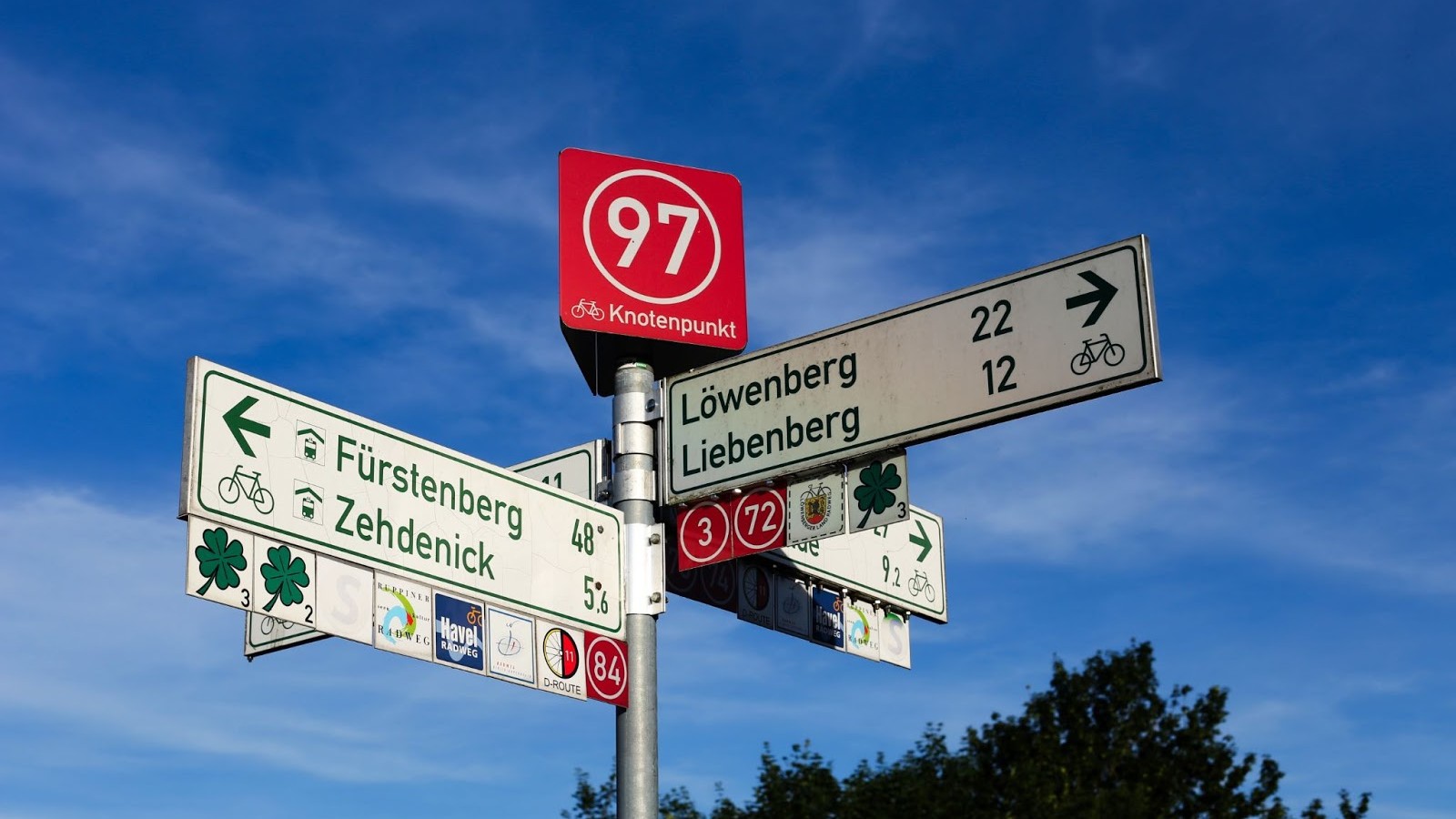How to Move to Germany: A Step-by-Step Guide
A detailed guide on moving to Germany to live, work or study. This includes finding a place to live, finding a job, and the documentation you need.
.jpg)
Table of Contents
If you’re thinking of moving to Germany, you’ll be in the company of roughly 11.43 million others who have been attracted by the country’s high standard of living and vast study and work opportunities.
To help you on your way to Germany, we’ll look at some useful information including bureaucratic features to be familiar with, the most popular regions for expats and how to find a place to live.
And if you need to transfer currency to or from Germany as part of the move, it’s up to eight times cheaper to do it with CurrencyFair than with a traditional bank. Save money on your overseas transfers and put the funds towards your first mietsicherheit (apartment deposit).
Moving to Germany provides the chance to join a thriving economy with an excellent work/life balance culture and opportunities for further education. Germany has a population of about 83 million people, widely dispersed throughout the country, so whether you’re looking for the buzz of Berlin or Munich’s easy access to the mountains, you’ll find an abundance of historical cities to choose from.
10 best places to live in Germany for expats
Where are the best places to live and work in Germany as an expat? Not just the best German cities for English speakers, but the best places to call home.

Language: German, but English is widely spoken.
Population: 84,236,156 as of March 2022.
Capital: Berlin.
Currency: Euro.
Some useful definitions
Aufenthaltstitel - a residence permit.
Ausländerbehörde - a local German Immigration Authority Office or foreigner’s office.
Gesetzliche krankenversicherung - statutory health insurance.
Kaltmiete - cold rent, the rent for the use of the room.
Warmmiete - warm rent, includes other costs such as water, heating, waste disposal and caretaker services.
Mietsicherheit - a kaution, mietkaution or mietsicherheit is the deposit you will give to your landlord.
The anmeldung - your residence registration.
Wohnungsgeberbestätigung - a document provided by your landlord when you move into an apartment.
Wohngemeinschaft or WG - a shared apartment.
Germany consistently scores highly when it comes to quality of life, family life, and average earnings as a destination for expats. However, despite the abundant benefits, moving to Germany can present its challenges. Before packing up and starting your job hunt, consider these pros and cons of living in Germany.
Moving to Germany: pros
Impressive standard of living
Moving to Germany offers the opportunity to work with some of the world’s leading companies and to take home some of the highest average salaries and minimum wage in Europe. Away from work, perks include a high standard of healthcare and public transport, and excellent public education. The work/life balance is healthy too. German culture values recreation in order to recharge rather than going into the office at the weekend or working late. With these things combined, the quality of life in Germany is generally considered to be very high.
German gastronomy
Picture a sausage truck on every square, more than 7,000 varieties of beer, and a thriving Dӧner kebab scene and you have all the ingredients for a culinary expat life to savour. Even if German food often misses out on the praise lavished on cuisines from other European nations, it’s actually far more sophisticated and nuanced than expats might expect. In short, you won’t go hungry in Germany. This is a nation that’s comfortable with a cabbage, proud of the potato, and mad for meat, but also adept at producing more than 300 types of bread and some classic pastries.
A cultural colossus
Germany is home to 51 World Heritage sites, and more than 6,200 museums that celebrate Germany’s global contribution to design, engineering, literature, art and cinema. The Old Town is still a feature of even the most modern German cities, often having been completely restored following their destruction in World War II. Start with Trier, the oldest city in Germany, which dates back to Roman times, or join the tourist groups flocking to Cologne and Rothenburg ob der Tauber during high season. For fans of avant-garde, Bauhaus and alternative culture, Berlin oozes energy and style.
Fresh air and wunderlust
Outdoor activity and exercise are de rigueur in Germany and families seize any opportunity to hike, bike, ski or camp. That ethos is reflected in the urban architecture too. The number of green spaces, parks and playgrounds in big cities can be astonishing to the newly arrived expat. Berlin, for example, counts more than 2,500 public parks and gardens.
Take your pick when it comes to topography, with the lakes or Baltic coast resorts in summer, the Black Forest in autumn, and the Alpine ski resorts in winter. Overall, there are 16 national parks to explore in Germany, covering over a quarter of the country. And if that’s not enough, it shares borders with nine countries: Denmark, Poland, the Czech Republic, Switzerland, Austria, France, Belgium, Luxembourg and the Netherlands, making it an excellent hub for further travel and adventures.
Moving to Germany: cons
High cost of living
Your weekly shopping basket or dining out budget might be more affordable, but with up to 40% of your paycheck covering accommodation on average, it needs to be. Move to the economic hotspots such as Düsseldorf, Frankfurt, Munich or Cologne, for example, and you will be paying high rent by European standards, although perhaps not in for much of a shock if you’re coming from San Francisco, Hong Kong, London or Zurich.
Difficulty in integrating
The challenge of making friends and playing a part in the community is a recurring theme among expats. While it’s quite possible to live in the big cities without speaking German, learning the language will make integration much easier. If you can navigate the German language’s formal and informal pronouns, get used to saving your verb for the end of the sentence, and establish which of the eight main dialects applies to your region, your experience much happier will be (you see what we did there!).
An excess of rules
Expats might find it frustrating to open a bank account, pay with a card (cash is still Kaiser in Germany), and obtain their residence permit from the nearest German Aliens Authority (Ausländerbehörde). This is no place either to cross the road on foot at a red light, close the office windows, or look for an open shop on Sunday. Anecdotally, many fresh-faced expats are also shocked at the abruptness of German customer service, which tends to be more of a fact-based transaction rather than an exchange of goodwill.
For more information on the pros and cons of moving to Germany, check out: 8 pros and cons of expat life in Germany
8 pros and cons of expat life in Germany
Familiarise yourself with the advantages and disadvantages of expat life in Germany before making the move to this wunderbar country.

Here we will outline essential information for anyone thinking of moving to Germany, with details on residence requirements, visas, cost of living and healthcare.
Covid-19
Due to the fluid nature of the Covid-19 pandemic and the global response in terms of lockdowns and border restrictions, it is important to check the latest updates from Germany’s Ministry of the Interior and Community, the Bundesministeriums des Innern und für Heimat (BMI), before travel.
If you’re from a European Union country, Liechtenstein, Iceland, Norway or Switzerland you don’t need a visa to move to Germany. For all other nationalities, you need a visa or a residence permit if you plan to work in Germany or stay there for more than 90 days.
If you’re from Andorra, Australia, Brazil, Canada, El Salvador, Honduras, Israel, Japan, Monaco, San Marino, New Zealand, the Republic of Korea, the United Kingdom or the US, you don’t need a visa to enter the country but you will need a work visa or residence permit to work there. Even if you’re not planning to work in Germany, you will still need to apply for a residence permit (Aufenthaltstitel) at the local German foreigners’ office (Ausländerbehörde) if you’re going to be there for more than 90 days.
For all other countries, a residence visa is required to stay in Germany for more than 90 days for work or study or if you intend to move to Germany permanently.
The requirements for a residence permit vary depending on your situation, but you will need a valid passport, a couple of recent passport photos, proof that you have a place to live, proof of health insurance and proof that you can support yourself.
The German Federal Foreign Office has a convenient visa navigator on its website that allows you to pick out the right visa to move to Germany for you.
The cost of living in Germany is relatively low compared to many other European countries. According to Numbeo, a global cost of living database, as of 2022 you will need around €780 per month to cover your living expenses in Germany as a single person, not including rent. It also states that the average monthly rent for a one-bedroom apartment in the city centre is around €739 per month. However, it’s worth noting that this figure is rising, particularly in its capital city, Berlin. This map provides an overview of Germany’s rental rates by region.
Germany has a universal multi-payer health care system that is regarded as one of the best in the world. You have to have health insurance to move to Germany, but there are different requirements in place depending on various factors like your country of citizenship and the length of your stay. Most people in Germany pay into the public or “statutory” health insurance (Gesetzliche Krankenversicherung) through their employers, but there are two exceptions:
-
If you are a freelancer and earn less than €64,350 per year you can opt out of statutory insurance and get a private insurance plan instead.
-
If you earn more than €64,350 per year, you have the option to switch to private insurance and opt out of statutory insurance.
For a more detailed look at German health insurance, check out the resources available here.
While global bottlenecks have hindered the country’s exports, Germany’s economy is still one of the strongest in the world and growing. It has reported a shortage of skilled workers, and if you’re qualified in healthcare, engineering, information technology (IT), science, technology, engineering, and mathematics (STEM) subjects or skilled crafts, you’ll have little difficulty finding a job.
The German government has a handy calculator to assess your chances of finding work in Germany and a checklist of the documentation you’ll need to secure one depending on your circumstances. If you’re not an EU citizen, you will need both a German work and residence permit from the Ausländerbehörde to work in Germany.
The following resources can be used for finding a job in Germany:
Taxes in Germany are higher than in many other countries but the robust German social support system wouldn’t be possible without them. You can expect to pay income tax, social security contributions, VAT and church tax (if you’re a member of a church). Its tax system is based on a progressive sliding scale, so income tax starts relatively low at 14%, but rises to 42% for those in the highest-earning brackets. Your employer is responsible for deducting your tax.
There are six tax classes (steuerklassen) in Germany that determine the rate of tax you will pay:
-
Class I: Single/widowed/civil partnership/divorced. Workers who are not in category II, III or IV.
-
Class II: Single parents who are entitled to single parents allowance.
-
Class III: Married workers whose spouse does not have any income, or whose spouse is classified under tax category V. Widowed workers in the year that follows their spouse's death.
-
Class IV: Married (not separated) couples if both spouses earn a wage and live together in Germany.
-
Class V: Married worker whose spouse is in tax class III.
-
Class VI: Worker who receives a wage from multiple employers.
Even if you’re planning on working in Germany for a short period, there are still tax implications which we have covered in more detail here: Working abroad: what you need to know about tax residency. And if you do need to pay tax in a foreign currency back home, CurrencyFair’s competitive exchange rates can help you save money.
Finding accommodation could be the toughest part of your move to Germany, particularly in popular cities like Berlin and Munich, but there are plenty of resources online to help. You can find sublets and roommates on expat groups on Facebook and use short-term (but expensive) furnished apartment options like Wunderflats or Housing Anywhere to get settled quickly while you look for more permanent housing.
You could hire the services of a “Makler” (a German real estate agent) or search yourself on housing websites like ImmoScout24.
To improve your chances of finding a home, make sure you’re prepared with all the documentation required to rent in Germany as a foreigner:
-
Your ID or passport.
-
A Mietschuldenfreiheitsbescheinigung - a document to prove you don’t owe previous landlords money.
-
Three recent payslips to prove you’re earning enough to pay the rent. Proof of adequate savings may be accepted.
-
Bank statements from the last three months.
-
Mieterselbstauskunft - this is an application form giving the prospective landlord more information about you, such as how many people will live in the property and what you do for a living.
-
SCHUFA-Auskunftor Bonitätsauskunft für den Vermieter - a SCHUFA-Auskunft (credit report) shows your prospective landlord your credit score.
We’ve compiled our list of the top 10 cities to live and work in Germany as an expat. These are not just the best German cities for English speakers, but the most vibrant, connected places to find a home. Check out the best German cities for expats:
Frankfurt am Main
Not to be confused with the much quainter Frankfurt an der Oder, Frankfurt am Main is Germany’s financial centre, earning it the nickname “Bankfurt”. It shows. Germany’s fifth biggest city is home to all but one of the nation's skyscrapers and provides the headquarters for the European Central Bank, Deutsche Bank and Commerzbank, among others. As with most major financial hubs, Frankfurt is affluent and multicultural. Some 30% of the city’s population is foreign-born, with English widely spoken.
Hamburg
Hamburg rivals Berlin for an open-minded, easygoing, alternative attitude. That makes settling in easier compared to some of the country’s more conservative strongholds. Hamburg is Germany’s second-largest city, with 1.8 million inhabitants, and home to Shell, BP and Airbus. Expats are likely to be found in districts such as indie Eimsbüttel or avant-garde Sternschanz.
Munich
The southern city of Munich is Germany’s third-largest, but the nation’s most expensive. Expats can expect a curious meeting of old tradition and next-generation tech, sometimes referred to as the “laptop and lederhosen” lifestyle. Munich is home to German tech icons BMW, Siemens and Allianz, and 37% of the city’s population is from overseas. Because of its southern location, the city has a more benign climate, and you’re just over an hour's drive from the Bavarian Alps too. Consequently, it’s a great place to live for expats who love to get outdoors and pursue an active lifestyle.
Berlin
Few cities have reinvented themselves as energetically as Berlin, which was restored as German capital in 1991, reunited its east and west halves, and rediscovered its vim and vigour as a young, tech-focused startup hub. Home to 3.7 million people (a third of them foreign-born), Berlin feels noticeably bigger than other German cities. The city is still perceived as one of the most affordable western European capitals, but the steady influx of expats is slowly nudging up prices. The reward is an expat home that is creative, liberal-minded and, for the time being, still intoxicated by opportunity.
Stuttgart
The southern city of Stuttgart, Germany’s sixth largest, is an automobile industry and hi-tech bastion, with Daimler, Porsche, IBM and Bosch all calling it home. But Stuttgart is the antithesis of the industrial powerhouse. Perched on the hillside overlooking the Neckar river valley, surrounded by countryside, and a short drive to the Black Forest, it’s a stubbornly pleasant place to live. Everything you need from a cultural or culinary perspective is in the central Stuttgart Mitte district.
Dresden
Its strong cultural and artistic background once earned Dresden the nickname “Florence on the Elbe”, but this East German city literally had to rebuild itself from the rubble after World War II, and today stands out as an exciting tech hub with a young, dynamic population. The city has established itself as one of Germany’s major economic centres, particularly in pharmaceuticals, biotech and engineering. It’s also one of the greenest cities in Germany, with more than 60% of the local area covered in forest or parkland.
Aachen
As recently as 2018, expats asked to name their favourite city in Germany to live and work, picked not Berlin, Munich or Frankfurt, but Aachen. Particularly popular among IT and engineering professionals, this small city on the Belgian and Dutch border has a big history. While the Old Town, historic architecture and green spaces are certainly a draw, arguably the bigger attraction for expats is the relatively low cost of living set against high average incomes.
Cologne
Germany’s fourth-largest city is a media and creative hub just half an hour by car from the former capital Bonn. The magnificent Rhine River runs through both, and in Cologne this gives the city a dual identity. Most of the activity is on the left side, which plays host to downtown, key residential neighbourhoods and cultural landmarks (including the famous Gothic cathedral), and most of Germany’s television industry. The right side, by contrast, is typically referred to as the “Wrong Side” by Cologne residents, unless you’re looking for parkland and some low key relaxation. Reports from expats typically praise Cologne for its laid-back atmosphere and fun-loving nature, making it an easy place in which to integrate.
Hannover
The capital of Lower Saxony, with a population of 532,000, Hannover is well-experienced in welcoming overseas visitors thanks to its prominence as a commercial trade fair and exhibition city. As the city where the first CD and cassette were pressed, Hannover is also proud of its musical and cultural heritage. Perhaps the main reasons for expats relocating here initially would be opportunities with Continental, DHL, Sennheiser or Volkswagen, but they will discover a bike-friendly, green and culturally rich city that can be crossed comfortably in less than an hour.
For more information on each, check out: 10 best places to live in Germany for expats.
.
Once you have wrapped your head around the paperwork, a warm and wunderbar welcome awaits you in Germany.
Moving to a new country can be a big expense, particularly if you need to bring your car or relocate your pet with you. Whether you’re transferring money to pay tuition fees or an apartment deposit, CurrencyFair’s transparent fees and low margins will end up costing you less for transfers from Germany, as seen in our comparison assessment here.
It offers secure money transfers to over 150 countries and over 20 currencies. You can choose to send money with our quick, low-cost money transfers, or set your own rate on the Marketplace, and wait for the market to meet it — meaning you could even beat the market rate that you see online.
Sign Up Now
Join over 170,000 happy customers who have saved millions with CurrencyFair.
Related articles
If you are interested in moving to Germany we thought you might also like these blog posts.

Money transfer companies compared: Germany
Compare popular money transfer companies available in Germany to see which will give you the best rate for your international money transfers.

8 pros and cons of expat life in Germany
Familiarise yourself with the advantages and disadvantages of expat life in Germany before making the move to this wunderbar country.

Working abroad: which countries in Europe have the highest minimum wage?
Wondering which countries have the highest minimum wage in Europe in 2021, and how often they are updated? Read on to find out.
Disclaimer
This information is correct as of March 2022. This article is for general information purposes only and does not take into account your personal circumstances. This is not investment advice or an inducement to trade. The information shared is for illustrative purposes only and may not reflect current prices or offers from CurrencyFair. Clients are solely responsible for determining whether trading or a particular transaction is suitable. We recommend you seek independent financial advice and ensure you fully understand the risks involved before trading. Leveraged trading is high risk and not suitable for all. Losses can exceed investments. Opinions are the authors; not necessarily that of CurrencyFair or any of its affiliates, subsidiaries, officers or directors.

